Preparation for Traveling West
Preparation is key for a successful western journey․ Plan your route, pack essentials like sturdy footwear, and research navigation tools․ Stay flexible and mentally prepared for adventures․
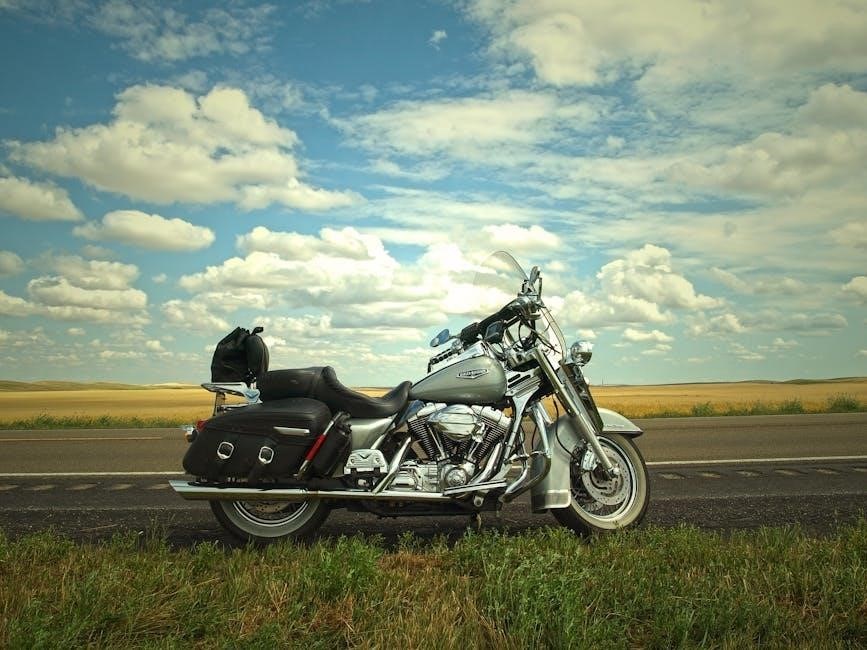
1․1 Planning Your Route and Itinerary
Planning your route and itinerary is crucial for a smooth western journey․ Start by defining your travel objectives and duration․ Use mapping tools to outline the most scenic and efficient routes, considering road conditions and weather․ Allocate time for key attractions while allowing flexibility for spontaneous adventures․ Break your journey into daily segments, ensuring realistic driving times and accommodation bookings․ Research entry requirements, permits, and local regulations to avoid delays․ Pack maps or GPS devices as backups for navigation․ Finally, share your itinerary with a trusted contact for safety․ A well-planned route ensures you make the most of your western exploration while staying organized and prepared․
1․2 Packing Essentials for a Western Journey
Packing the right essentials ensures comfort and preparedness during your western adventure․ Include durable clothing, sturdy footwear, and layers for varying climates․ Bring a reliable map, GPS device, and a first-aid kit․ Don’t forget a flashlight, extra batteries, and a portable charger for your devices․ Pack lightweight snacks, a reusable water bottle, and sunscreen for outdoor protection․ A small toolkit with basic supplies can be handy for unexpected repairs․ Consider a phrasebook or translation app to communicate effectively with locals․ Finally, carry a journal to document your experiences; Thoughtful packing ensures you’re ready for both planned and unplanned moments, making your journey enjoyable and stress-free․
Navigation and Directions
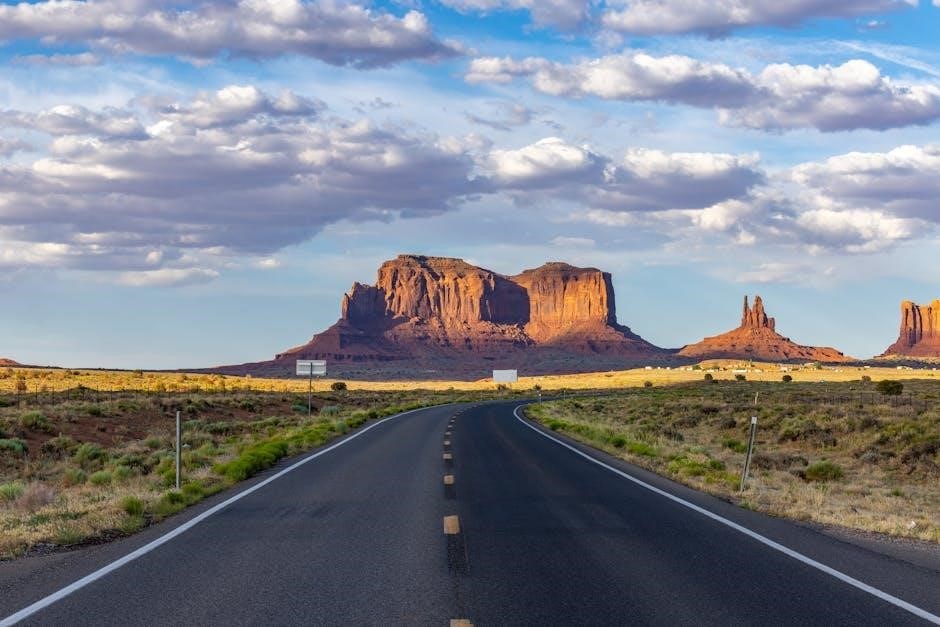
Mastering navigation is crucial for a smooth western journey․ Use reliable maps, GPS, and understand key directional phrases to ensure you stay on course and find your destinations effortlessly․
2․1 Understanding Maps and GPS for Western Territories
Understanding maps and GPS is essential for navigating the vast and often remote western territories․ Familiarize yourself with topographical maps to identify landmarks, trails, and water sources․ GPS devices are invaluable for precise location tracking, especially in areas with limited cell service․ Download offline maps and ensure your GPS is updated with the latest data․ Pay attention to compass directions and learn to interpret symbols on maps․ For long drives, use platforms like MapQuest to plan routes and check for road closures․ Combining traditional map-reading skills with modern GPS technology will enhance your ability to explore confidently and stay on course․

Communication and Asking for Help
Effective communication is crucial while traveling․ Ask for directions clearly, understand local phrases, and stay calm in emergencies․ Politeness and patience ensure helpful responses always․
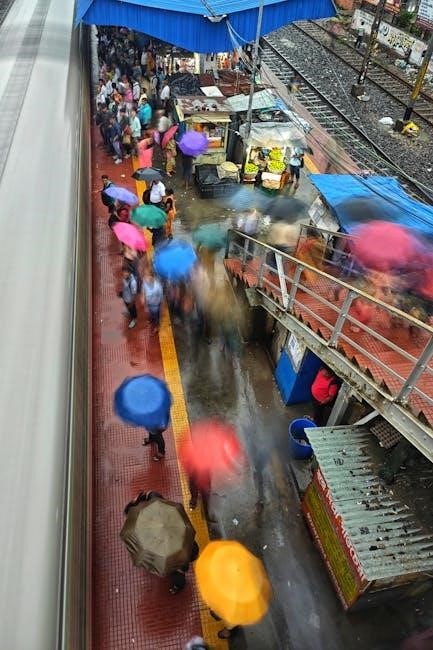
3․1 Key Phrases for Asking Directions
When asking for directions, use clear and polite phrases like, “Is it far?” or “Can I walk there or do I need to take the bus?” Say, “I think I’m lost․ Where am I on this map?” to seek help․ Ask, “Do you have a map?” to visualize your route․ Understanding directions is crucial, so clarification is key․ These phrases ensure effective communication, reducing confusion and helping you navigate smoothly․ Mastering these expressions enhances your ability to seek assistance confidently, making your journey more enjoyable and stress-free․
3․2 Effective Communication with Locals
Effective communication with locals enhances your travel experience․ Ask questions politely, such as, “Do you have a map?” or “Can you clarify the directions?” Show respect for local customs and traditions․ Smile, make eye contact, and speak clearly to ensure understanding․ If language barriers exist, use hand gestures or visual aids like maps to convey your needs․ Be patient and open-minded, as locals appreciate travelers who make an effort to connect․ Learning a few key phrases in the local language can foster goodwill and meaningful interactions․ Clear and respectful communication helps build trust and ensures a more enriching and memorable journey․
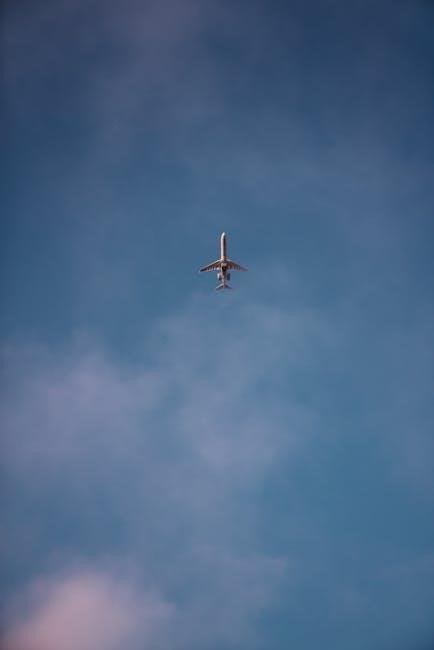
Safety and Emergency Precautions
Carry emergency supplies, stay hydrated, and monitor weather conditions․ Keep a first-aid kit and know basic first aid․ Trust instincts and avoid risky situations for a safer journey․
4․1 Health and Safety Tips for Western Travel
Stay informed about local health advisories and weather conditions․ Carry a first-aid kit with essentials like bandages, antiseptics, and pain relievers․ Ensure proper hydration and nutrition, especially in remote areas․ Be prepared for altitude sickness if traveling to high elevations․ Know basic first aid for injuries and illnesses․ Trust your instincts and avoid risky situations․ Familiarize yourself with emergency contact numbers and local healthcare options․ Carry a portable phone charger and reliable navigation tools․ Always inform someone about your travel plans and expected return time․ Respect the environment and wildlife to minimize risks․ Prioritize mental health by staying calm and seeking help when needed․
4․2 Handling Emergencies on the Road
In case of emergencies, remain calm and assess the situation․ For car breakdowns, move to a safe location and use warning triangles or flares․ Call emergency services or roadside assistance if needed․ Keep a roadside emergency kit with flashlight, jumper cables, and first aid supplies․ If lost, use GPS or maps to locate your position․ In medical emergencies, administer basic first aid and seek professional help immediately․ Always carry a charged phone and backup power source․ Document incidents for insurance or further assistance․ Stay visible and avoid risky actions․ Prioritize safety and seek help as soon as possible to resolve the situation effectively․
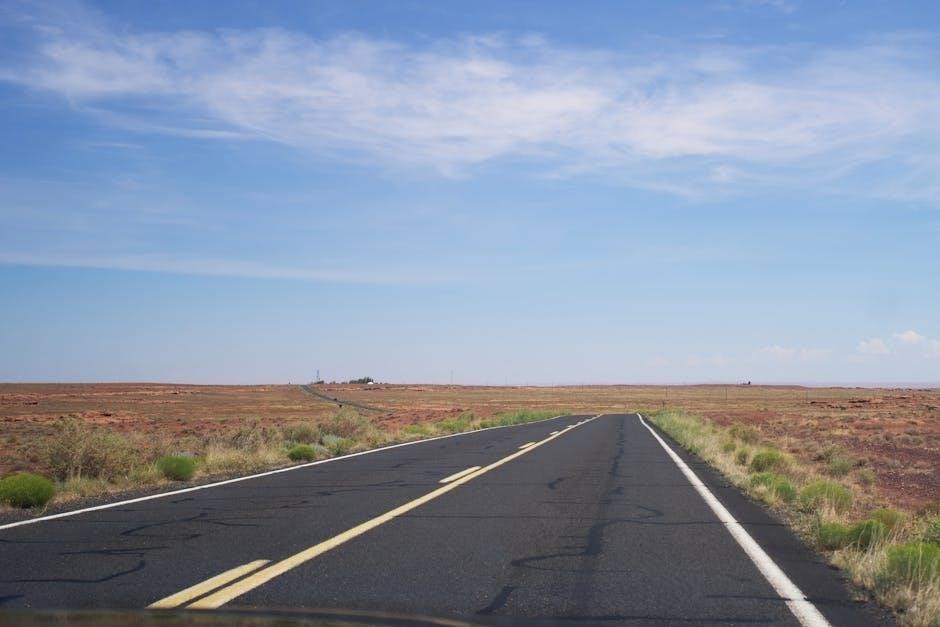
Cultural and Environmental Awareness
Respect local customs, traditions, and environmental rules․ Minimize ecological impact by reducing waste and preserving natural habitats․ Engage respectfully with communities to foster positive interactions and understanding․
5․1 Respecting Local Customs and Traditions
Respecting local customs and traditions is vital when traveling west․ Research the cultural norms of your destination to avoid unintended offense․ Dress modestly, especially in sacred sites, and learn basic greetings to show respect․ Familiarize yourself with local etiquette, such as dining habits or interaction styles․ Engage with communities thoughtfully, asking permission before photographing or participating in ceremonies․ Honor environmental practices, like reducing waste and preserving natural habitats․ By embracing these practices, you foster positive interactions and leave a lasting, respectful impression on the places you visit․
Budgeting and Financial Planning
Budgeting is crucial for a smooth western journey․ Track expenses, set a daily limit, and allocate funds for accommodations, food, and activities․ Carry local currency for emergencies․

6․1 Managing Expenses While Traveling West
Managing expenses while traveling west requires careful planning and discipline․ Start by setting a daily budget and tracking every expenditure․ Use budgeting apps to monitor spending and stay organized․ Prioritize essential costs like food, lodging, and transportation, while allocating a portion for activities and souvenirs․ Avoid unnecessary purchases and opt for cost-effective options, such as cooking meals instead of dining out․ Carry a mix of cash and credit cards for flexibility․ Research free or low-cost attractions to save money; Regularly review your finances to ensure you’re on track․ Having a financial cushion for emergencies is also wise․ Stay mindful of exchange rates if traveling internationally․

Reflection and Documentation
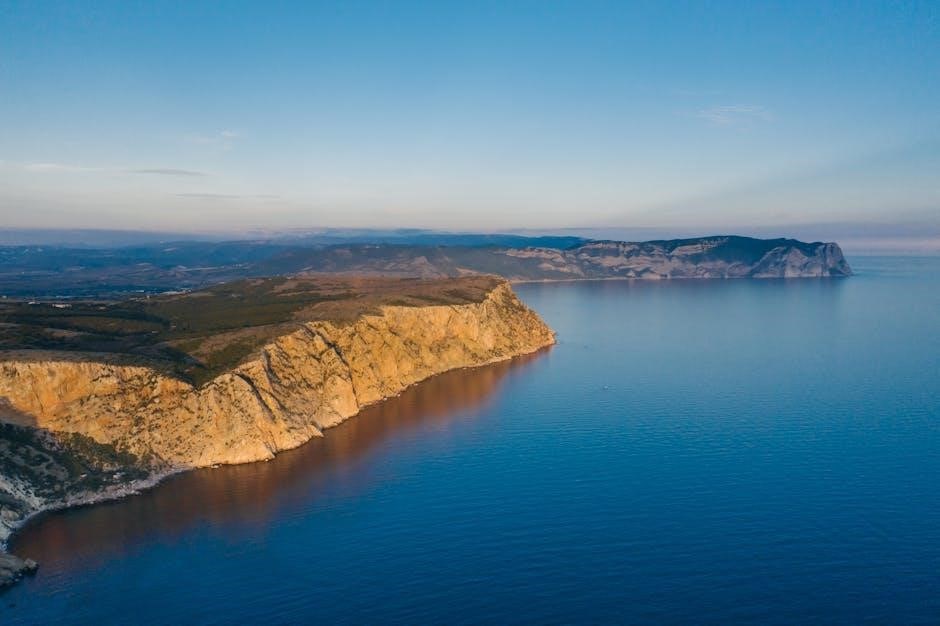
Reflecting on your western journey helps process experiences and gain insights․ Document memories through journaling, photography, or videography to preserve moments and share stories․ This fosters personal growth and connection․
7․1 Journaling Your Western Travel Experience
Journaling your western travel experience is a powerful way to reflect and preserve memories․ By documenting your journey, you capture moments, emotions, and insights, fostering personal growth․ Writing daily helps process experiences, gain clarity, and appreciate the beauty of the unknown․ Include sketches, ticket stubs, or photos to enrich your entries․ Reflecting on challenges and triumphs allows you to grow and learn․ Journaling also serves as a storytelling tool, enabling you to share your adventures with others․ Embrace this practice to deepen your connection with the journey and yourself, transforming your travel into a meaningful, lasting narrative․